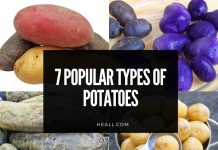Mom was right, eat the veggies, but also the fat to live longer. A large human study has shown that contrary to popular belief, eating a higher fat diet can be linked to reduced mortality from cardiovascular conditions and from most chronic diseases.
Information gathered for over 20 years in the Nurses’ Health study (85,000 women) plus the Health Professionals Study (44,000 men) determined which lifestyle dietary habits had the greatest impact on overall mortality.
A plant-based carbohydrate-controlled diet won hands down. Another recent study cited the low-carb lifestyle the best type of diet for keeping weight off post-diet, (for weight maintenance). Being overweight has long been a risk factor for heart disease, diabetes and other chronic diseases.
Table of Contents
Those Eating the Most Vegetable Protein and Fat Won
Protein and fat ratios were established for the purpose of determining longevity. Those people eating the modified low-carbohydrate diet but with the distinction of having the protein source primarily from plant-based foods such as whole soy foods and other protein-rich vegetables like lentils and beans, won hands down.
They lived longer with healthier hearts. Not only that, they ate the most fat of the group types. Fat was not an issue; as on the typical low-carb diet, fat is not counted, only gross carbohydrates. Net carbohydrates are the total carbohydrates minus the fibers.
Limiting carbohydrates and eating foods that are plant based and high in fiber allows the dieter to be satiated with a primarily plant based protein source. Those groups of people who eat soy protein as their primary source of protein are among the longest living people on the planet.
This Type Diet is Economical, Easy and Delicious
Eating a high-protein diet without depending completely on animal protein is actually thrifty and convenient. Eating a little meat, like bacon, to flavor the beans makes a delicious meal that is very cost effective. Reducing animal protein for heart health has been addressed for some time.
Whole soy foods contain plant fibers, high protein and have been shown to reduce cancer risk. For instance, a gluten-free, whole soy cereal, is high in protein (25 grams per ½ cup) and fiber (9 grams per serving) and the pantry stable meat analog products made popular by a feature in Prevention® Magazine a few years ago, also have similar high protein contents.
The dry meat substitutes can be reconstituted, using broth or tomato type sauces and actually are much less expensive than using ground beef . These products are easily available on the web from dixiediner.com, but are not readily found in stores so try them and then just buy in bulk because they are pantry stable, unlike the expensive prepared veggie-meat lunchmeats in the supermarket.
Enjoy Meat and Dessert but Make it Count
By using the meat substitutes made from whole soy, a good share of the monthly meat budget can be shaved and saved for steaks and larger cuts of poultry or fish. The enjoyment factor is still the same but the health benefits increase and the costs go down.
Sugar-laden desserts are high in body-fat-promoting carbs and are virtually nutrition-less. With that said, lets face it, most of us have a sweet tooth. This also can be satisfied by purchasing low carb versions of favorite dessert mixes like brownies, muffins, cakes and sweet breads. These products are delicious and can be made and frozen for handy snacking.
Many low-carb on-line food distributors carry these products as well as other internet vegetarian food purveyors. By simply substituting a low carb delicious snack or dessert for a sugar-filled one, weight is kept off and health is improved on a regular basis. It is also easier to say no to the high sugar-filled dessert when the good low carb kind is waiting in the freezer for a great guilt-free snack. Enjoy dessert regularly without gaining weight or compromising health. Live a long, healthy life and enjoy it.
Sources:
- Fung TT et al.” Low-carbohydrate diets and all-cause and cause-specific mortality: Two cohort studies.” Annals Of Internal Medicine 2010 Sept 7; 153-289
- Yancy WS Jr et al. “Animal, vegetable, or…clinical trial.” Annals of Internal Medicine 2010 Sept 7; 153:337
- James W. Anderson, et al., “Meta-Analysis of the Effects of Soy Protein Intake on Serum Lipids,” New England Journal of Medicine, 333; 276-282, 1995
- Fries JF. New England Journal of Medicine 1980;303:131-5
- World Health Organization 1996; Japan Ministry of Health and Welfare 1996



